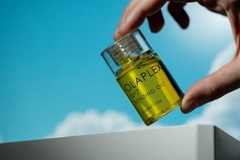Morocco prohibits a CMR in nail products following EU ban

The Moroccan Agency for Medicines and Health Products (AMMPS) has revealed a ban on trimethylbenzoyl diphenylphosphine oxide (TPO) in nail products, taking effect immediately. The ban includes imports, manufacturing, distribution, marketing, and use of all products containing TPO. It was announced days before the EU’s ban on the same substance, which took effect today.
TPO is commonly used in nail products, and has been classified by the EU as a CMR 1B (potentially carcinogenic, mutagenic, or reprotoxic). Still, future research is needed to confirm its health effects on humans.
The AMMPS informed health professionals, beauty industry stakeholders, and consumers that TPO is now strictly forbidden nationwide and stressed the importance of checking products, especially nail polishes and gels.
“The beauty industry professionals must immediately cease using products containing TPO and ensure these are no longer offered to clients,” stated the AMMPS when announcing the ban.
The EU has also banned TPO, effective today, following an announcement in 2023. There is no “sell-through” or “use-up” period.
“From September 1, 2025, onwards, all placing on the market and making available in the course of commercial activity must stop, even for products already in stock or purchased before that date,” states the European Commission (EC).
Following an EU ban
In March 2014, the Scientific Committee on Consumer Safety deemed TPO safe in nail modeling products at a concentration of 5%.
 From today, no cosmetics in the EU containing TPO can be sold, imported, or used.However, Swedish Authorities raised concerns in June 2020, which triggered an extensive scientific review. It was followed by a reclassification in September 2021, when the European Chemicals Agency’s Committee for Risk Assessment classified it as a CMR 1B.
From today, no cosmetics in the EU containing TPO can be sold, imported, or used.However, Swedish Authorities raised concerns in June 2020, which triggered an extensive scientific review. It was followed by a reclassification in September 2021, when the European Chemicals Agency’s Committee for Risk Assessment classified it as a CMR 1B.
It was formalized in the Delegated Regulation EU 2024/197, an amendment to the CLP (Classification, Labeling, and Packaging) regulation 1272/2008, in October 2023. It was published in the EU Official Journal in January 2024, leading up to today, banning cosmetics containing TPO in the EU for usage, sales, and imports.
Banning TPO was also included in the EU Omnibus Act drafted in May this year, which bans and restricts a wide range of cosmetic ingredients deemed unsafe. It is part of the newly proposed Omnibus Act VIII, which updates the EU Cosmetics Regulation and will impact the formulation, labeling, and marketability of personal care products across the EU starting May 1, 2026.
The draft was later followed by a simplification package suggested by the EC, easing the restrictions on CLP and chemical regulations. The EC argued that this would save the industry hundreds of millions in annual costs. However, the move sparked concerns from green lawmakers who accused the EC of siding with the industry and sacrificing consumer safety.













